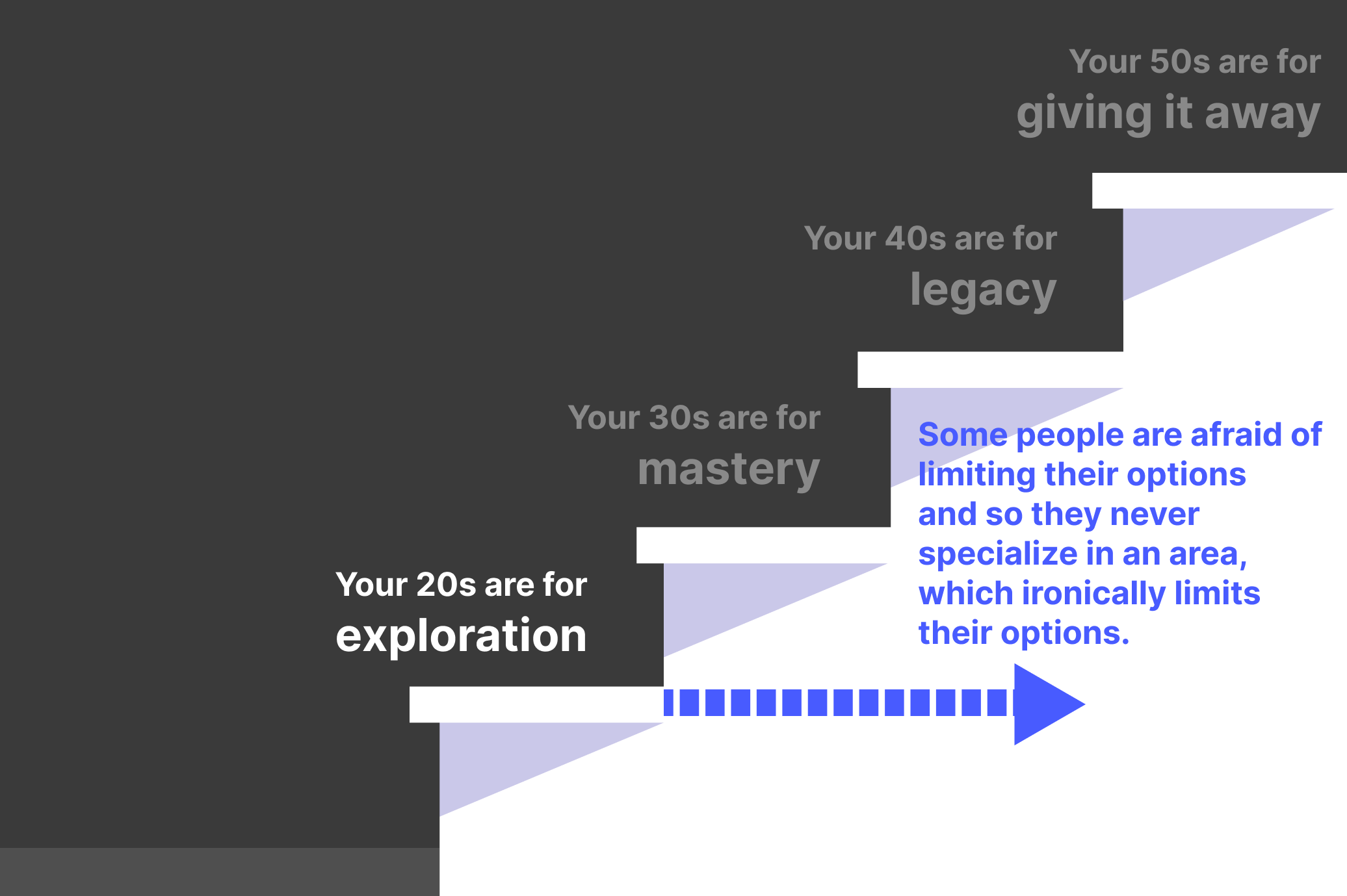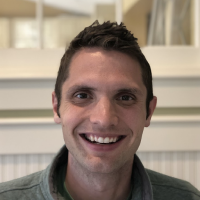Last year I was giving a talk to a group of college students in which I was offering advice about entreprenuership. One of the points I made was to fix a problem they are passionate about. The heart behind this is that startups are hard. And when it gets hard, founders need to have strong and deep motivation to keep going. Money and status are not motivating enough - there’s easier ways to get it. I thought it was great advice.
It was only later that I realized that my well-intended advice wasn’t actually helpful.
That’s because for most of us, in our early 20s we didn’t know what we were passionate about. We were still figuring it out. Which reminded me of something I had come across in the past.
Years ago I was talking with one of my team members and he shared some wisdom his dad had given him when growing up. His dad told him “when in your 20s, focus on exploration, when in your 30s - master, when in your 40s - legacy, and when in your 50s - give it all away”.
I love this framework because it gives permission for young adults to explore many different routes without committing to any specific one. It frees students up to use their 20s as a time to explore what their God-given passions are. And once those passions are identified, then my advice of pursuing what your passionate about will ring true.
Now different people will experience these decades differently. Some may have known since they were 6 years old what they wanted to do when an adult. And in other cases, someone may find themselves taking longer than they would like to master a certain field. Don’t get overly stuck on the specific ages and decades. Rather let this be a general guide on the sequence of events.
In discussing this framework with a professor, he commented how some students run the risk of never specializing. Whether it be a fear of committment or indecisiveness, they fail to make the jump to the second step.

While young adults need the freedom to explore, this also isn’t a blank check to dabble for the rest of their lives. As they find areas they are passionate about, they should pick one. If they aren’t sure - just make your best guess and dive in.
I love how Paul Graham, one of the founders of Y Combinator, puts it in his article title “How to Do Great Work”:
The way to figure out what to work on is by working. If you're not sure what to work on, guess. But pick something and get going. You'll probably guess wrong some of the time, but that's fine. It's good to know about multiple things; some of the biggest discoveries come from noticing connections between different fields.
So if you’re in your 20s, feel the freedom to learn. As you get into your 30s, it’s time to master a specific area. As you go through your 40s, this is your time to make an impact in your field, and as you climb into your 50s, it’s time to pass along everything you know to the next generation.

